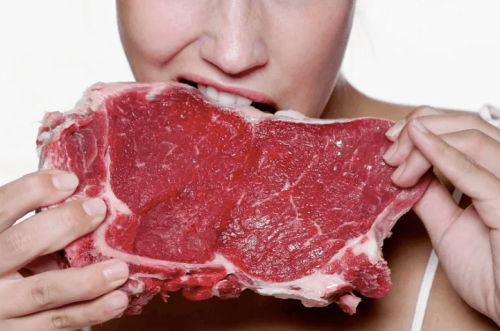The association between a plant-based diet (vegetarianism) and extended life span is increasingly criticized since it may be based on the lack of representative data and insufficient removal of confounders such as lifestyles. Although the impact of red and processed meat intake on cardiovascular outcomes has been studied, inherent limitations hinder definitive causal conclusions. Traditional epidemiological study designs cannot fully account for confounding factors and reverse causation.
 Worldwide, bivariate correlation analyses revealed that meat intake is positively correlated with life expectancies. This relationship remained significant when influences of caloric intake, urbanization, obesity, education, and carbohydrate crops were statistically controlled. Stepwise linear regression selected meat intake, not carbohydrate crops, as one of the significant predictors of life expectancy. In contrast, carbohydrate crops showed a weak and negative correlation with life expectancy. MR analysis, utilizing large-scale GWAS data, did not find a significant causal association between consumption of red and processed meat, including pork meat, mutton meat, and beef meat, and the risk of coronary artery disease, atrial fibrillation, heart failure, or stroke.
Worldwide, bivariate correlation analyses revealed that meat intake is positively correlated with life expectancies. This relationship remained significant when influences of caloric intake, urbanization, obesity, education, and carbohydrate crops were statistically controlled. Stepwise linear regression selected meat intake, not carbohydrate crops, as one of the significant predictors of life expectancy. In contrast, carbohydrate crops showed a weak and negative correlation with life expectancy. MR analysis, utilizing large-scale GWAS data, did not find a significant causal association between consumption of red and processed meat, including pork meat, mutton meat, and beef meat, and the risk of coronary artery disease, atrial fibrillation, heart failure, or stroke.
Meat consumption, in fact high meat consumption, is not only the dietary pattern that shaped human evolution, it is also the dietary pattern of Hunter-Gatherers; the healthiest, least chronic disease-ridden human populations ever studied.
It is biologically, logically, and scientifically absurd to think that the dietary patterns of our genetically identical ancestors have somehow become unsuited or unhealthy for us.
How we raise and feed the animals we eat, how we prepare this meat, how much we process this meat, and how much refined sugar and trans fats we consume with this meat, are what is unhealthy, NOT the consumption of a high protein, high animal fat diet.
Politics and economics via big agriculture lobbying has been the primary influence in the creation of the laughable “Food Pyramid” and so-called expert recommendations from nutritionists and dieticians. The Food Pyramid is not based on valid nutritional science.
WHAT YOU NEED TO KNOW
Modern nutritional science has revealed that meat provides complete nutrition.
All the claims regarding the superiority of vegetarian diets are from epidemiological not intervention studies – meaning there is no evidence of a causal link. What scientific analysis reveals is that vegetarians are often more health conscious, they exercise more, are less likely to be obese, and have fewer comorbidities on average than meat eaters. However, it is NOT meat that is the determining factor, it is overall health status based on other lifestyle factors that lead to comorbidities such as obesity and diabetes.
The truth is that meat eaters who also exercise regularly and maintain healthy body weight are healthier than lifestyle-matched vegetarians. This is because humans are, without debate, genetically designed to consume the nutrients found in meat.
WHAT YOU NEED TO DO
If you want to lose weight, gain muscle, reduce your risk of obesity, heart disease, diabetes, cancer, depression, and every other chronic illness in order to have a longer, better life eating more vegetables is definitely recommended but you also need to eat more healthy meat (grass-fed meat, not commercial grain-fed meat) and less unhealthy carbohydrates.
For more information on how to identify and make healthy lifestyle choices please visit www.behealthychiropractic.com.au
Reference:
You et al. (2022) Total Meat Intake is Associated with Life Expectancy: A Cross-Sectional Data Analysis of 175 Contemporary Populations. International Journal of General Medicine 2022:15 1833-1851.
Hu et al. (2024) Red and processed meat intake and risk of cardiovascular disease: A two-sample Mendelian randomization study. Clinical Nutrition 60 289-297.
